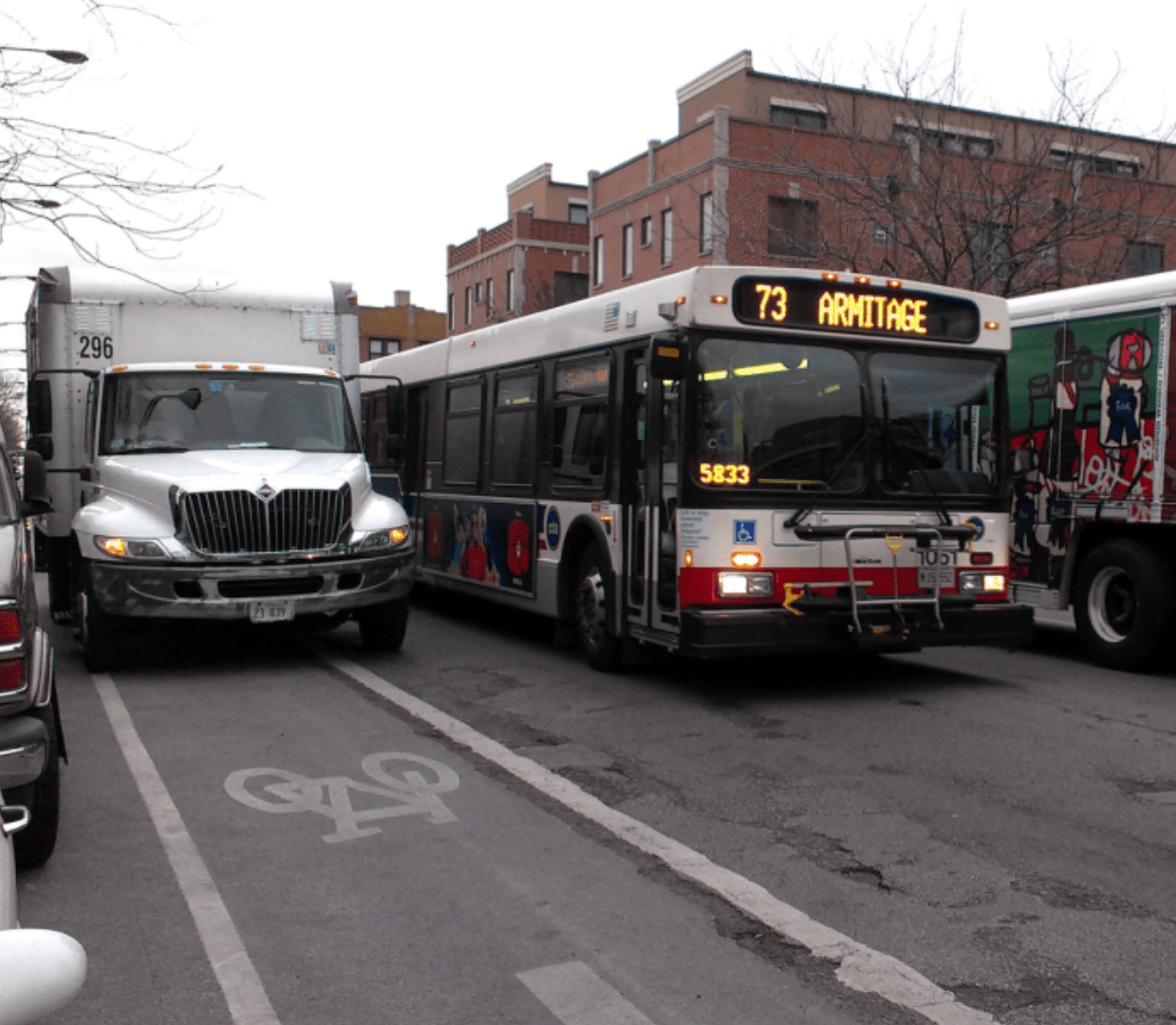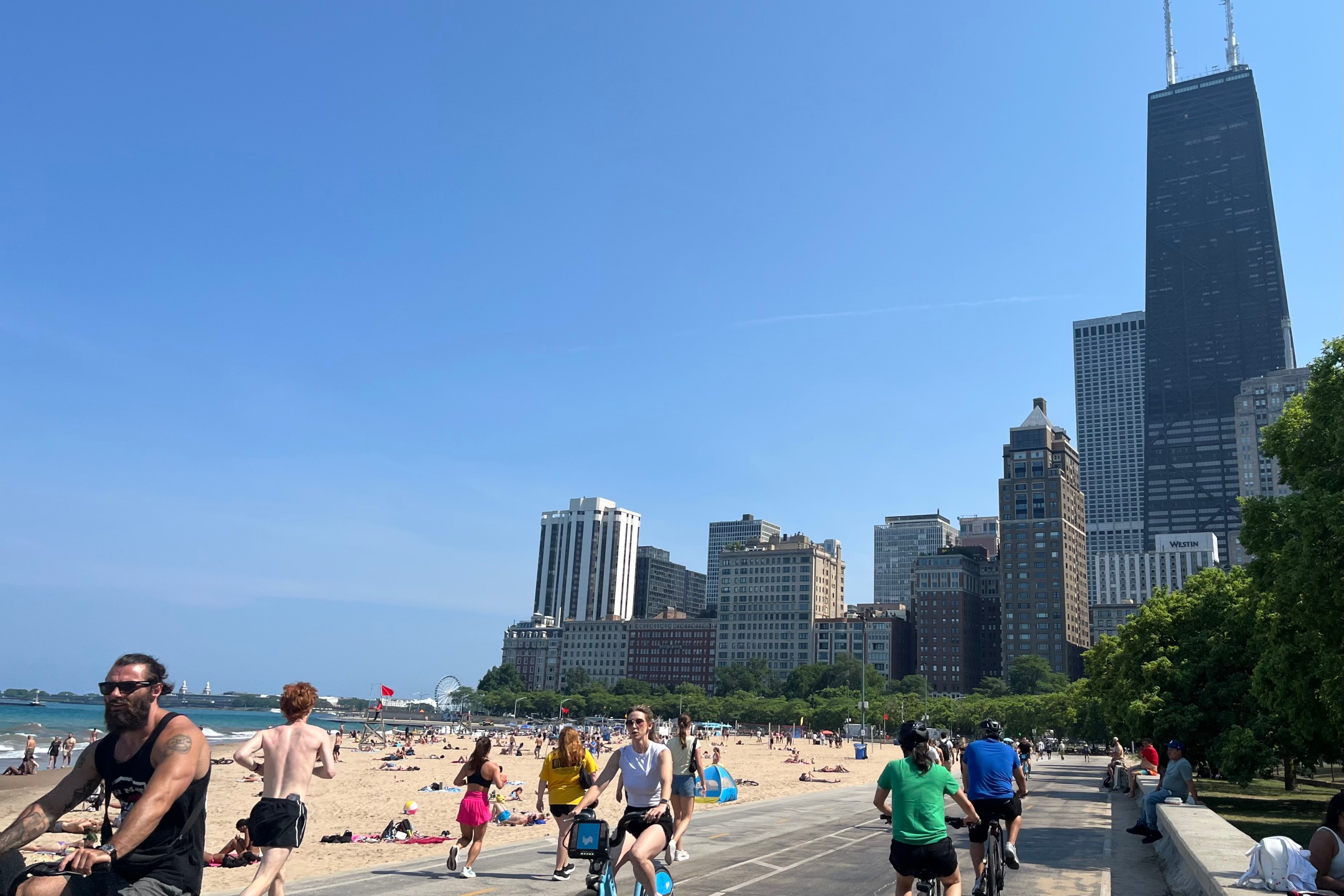There was some good news at today's Chicago Committee on Pedestrian and Traffic Safety meeting as the Smart Streets Pilots ordinance to allow camera enforcement of bus lanes, bike lanes, and loading zones in the central city passed in a preliminary vote. A measure to require Complete Streets upgrades in all city street repaving and streetscape projects was also approved. Both ordinances will likely go before the full City Council for a final vote next Wednesday, March 15.
Testimony on the measures
The online-only hearing started with testimony from sustainable transportation advocates in favor of the ordinances. Active Transportation Alliance campaign manager W. Robert Schultz III noted that last year one in three Chicago traffic fatalities were people walking or biking. He said drivers have struck him in crosswalks on two occasions, including last December in Jefferson Park: "Terrifying and unacceptable." He called the measures "valuable tools to add to the toolbox towards making Chicago streets safe for all user," but noted that they "are only one piece of the puzzle [that] can’t and don’t replace building out the network for bikes and buses."
Schultz added that the Complete Streets ordinance would mandate "curb extensions and protected bike lanes [that] will save lives, while bus bulbs and bus lanes will improve the speed and reliability of CTA buses. This measure will stretch our infrastructure dollars as far as possible, since safety improvements are cheaper to make when a street is already being rebuilt or repaved."
In addition, Schultz noted that the Smart Streets Pilot ordinance "has the potential to answer important questions on how to create an efficient and equitable transportation system," especially if the program includes lots of warning signs for drivers, a warning period for the new tickets, and continued evaluation of Chicago's Clear Path program, which offers half-off traffic fines for lower-income drivers and a ticket debt forgiveness program.
Another Chicagoan testified that the Complete Streets ordinance will help standardize walk/bike/transit improvements across the city. "We are sick and tired of a piecemeal, ward-by-ward approach to traffic safety that doesn't work. If Chicago wants to be a world-class city, it needs best-practice street designs that are mandated from the top. This ordinance will save lives by creating streets designed to reduce traffic violence."
Smart Streets Pilot ordinance
Next CDOT deputy commissioner Vig Krishnamurthy gave a presentation on how the Smart Streets Pilots would work. The ordinance is sponsored by alders Daniel La Spata (1st), Brian Hopkins (2nd), Brendan Reilly (42nd), Andre Vasquez (40th), and Matt Martin (47th.)
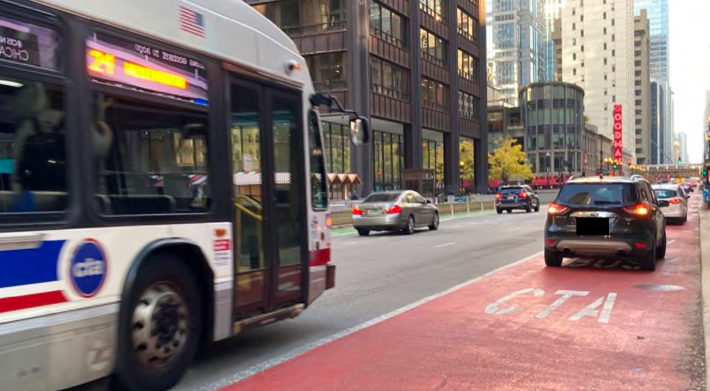
This measure has two components. It would allow camera-based enforcement of parking and standing violations via cams mounted on city-owned signs, poles, etc., as well as CTA buses, including vehicles stopped in bike lanes, bus lanes, crosswalks, fire hydrants, and other no-nos. The cameras could not be used to ticket motorists driving in bike or bus lanes, which would require a new state law.
Krishnamurthy explained that it's a two-year pilot, and the cameras will be operated by an outside contractor, similar to Chicago's automated red light and speed cameras. (Granted, those programs have had some controversies.) As with the traffic cams, there will be a human review and judgment of each camera image, and tickets will be mailed to the registered vehicle owned in collaboration with the Chicago Department of Finance, with the fines based on the existing municipal code. There will be a 30-day warning period when a new zone is activated, and CDOT promises there will be "clear signage." The cams won't be used to enforce parking meter violations.
The other aspect of the ordinance is camera-based management of curbside loading zones, letting commercial users to pay for loading zone use, with "smart rate" structures. Pricing could change based on a variety of factors, such as availability of space and incentivizing low-traffic times of day that would be ideal for deliveries.
There will be camera-based management and automatic billing of the space use through license plate readers, with rates set by the city's comptroller. CDOT says the program will reduce double parking, which is a hazard for all road users, and will enable more efficient payment and drop-offs for commercial drivers.
For starters the pilots will take place in the area bounded by North Avenue, Ashland Avenue, Roosevelt Road and Lake Michigan. It will start out with only a small number of enforceable areas as the program is tested and the impacts on the finance and administrative hearings departments are studied.
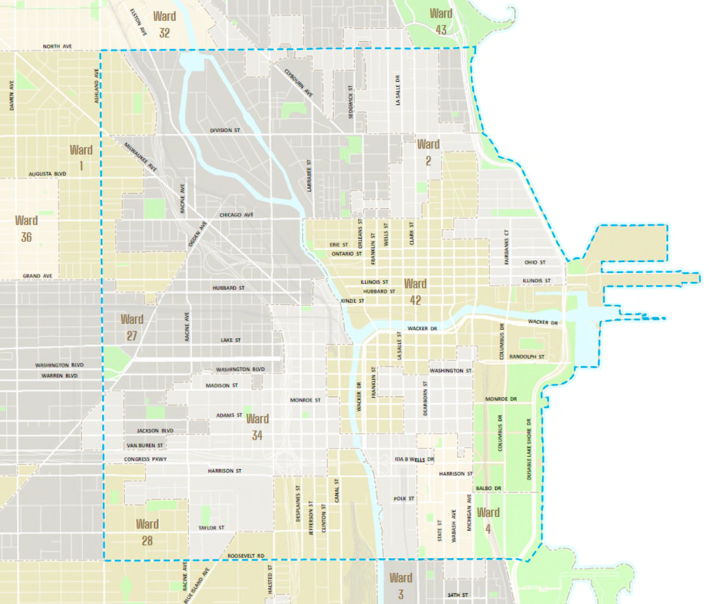
When the alderpersons were given an opportunity to ask questions, Mid South Side alder David Moore (17th) argued that camera enforcement of bike and bus lane violations should not be a "one size fits all" solution applied to all neighborhoods. But after he was reassured that another Council vote would be needed to extend the program to his ward, he said he would support the current measure.
On the other hand, La Spata said some advocates have complained that the the ordinance doesn't go far enough, since it won't allow for camera enforcement of bike and bus lanes in farther-flung areas, including many cycling hot spots. "That is a fair critique," he said, but noted that this ordinance is only a test, and it can later be expanded.
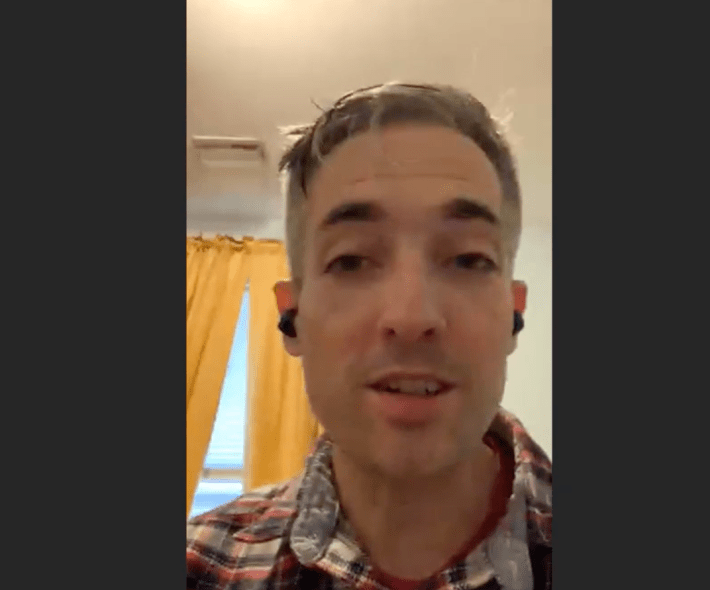
La Spata also noted some critics in the Council may call the measure a "revenue grab," but added "I would love for this to generate no money. Let's turn around two years from now and say we didn't earn a dime from this because residents and businesses did exactly what they should have."
While La Spata acknowledged that Complete Streets can mean different things in different parts of the city, he argued that "your safety in your community should not be determined by politics, the fact that infrastructure, and even enforcement can vary so much on a ward-by-ward basis." He pointed to the tragic scooter and bike crash deaths of toddler Rafi Cardenas, 2, and youth mentor Sam Bell, 44. "[They] should be alive today... I know what we are doing today will keep more folks safe."
Vasquez expressed enthusiasm for eventually expanding the pilot further north, noting that it would be useful for improving the parking-prone protected bike lanes on Clark Street in Edgewater.
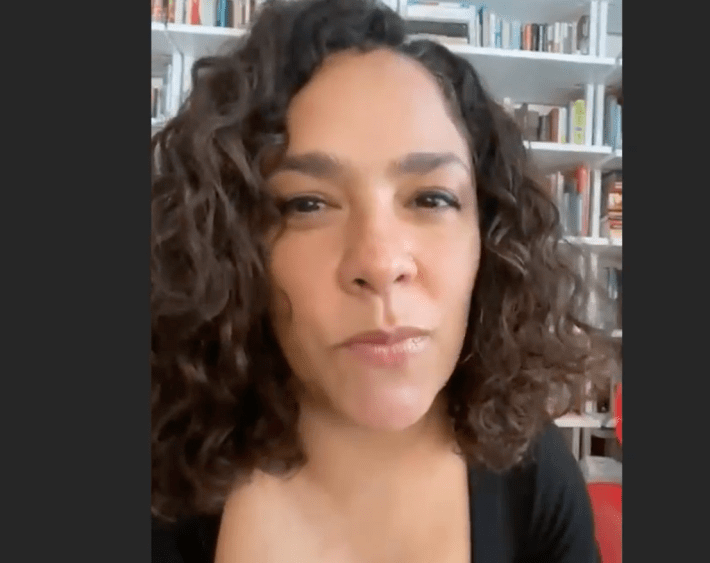
Ald. Rossana Rodriguez Sanchez (33rd) said she was concerned about "how slow the culture of safety in the streets is moving" and the potential for the program to result in more fines for residents. She asked what will be done to educate the public about the program to help people avoid fines. Krishnamurthy responded that CDOT may run PSA ads about the pilot on buses and bus shelters, as well as getting the word out through "grassroots" means like CDOT's Safe Routes Ambassadors program in partnership with community organizations. He promised to work with the 33rd Ward to publicize the program at events like block parties and community fairs.
The ordinance passed in a roll call vote.
Complete Streets ordinance
The Complete Streets ordinance sponsor Matt Martin explained that the measure mandates that CDOT incorporate walk/bike/transit improvements into all street projects; calls on the department to create design guidelines and a toolbox of standard safe streets element; and requires CDOT to regularly report on these developments to the Council. Read more about it here.
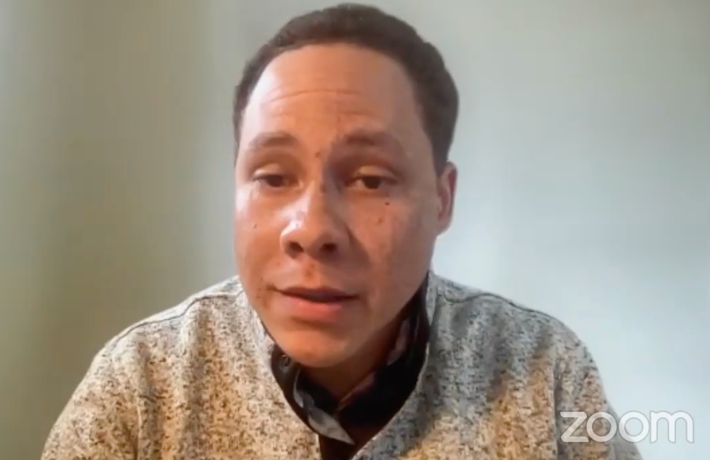
Martin noted that "traffic deaths have reached their highest point in years as of last year, and as a result I'm calling upon City Council to increase the rate at which we make potentially life-saving improvements along our major streets." He noted that the program will save wards money because discretionary "menu" funds won't have to be used for the upgrades.
Rodriguez-Sanchez applauded the measure. "I love that [Martin] decided to work on this with community organizations and advocacy groups that have been yelling for a very long time how change is needed. This is co-governance, and we love to see it."
Again, the ordinance passed in a voice vote.
To help these ordinances pass the full City Council on the 15th, contact your alderperson (find them here) to urge them to vote for it. You can also sign up to make a public comment at the Council meeting.

Did you appreciate this article? Please consider making a tax-deductible donation to help fund Streetsblog Chicago's next year of publication. Thanks!
